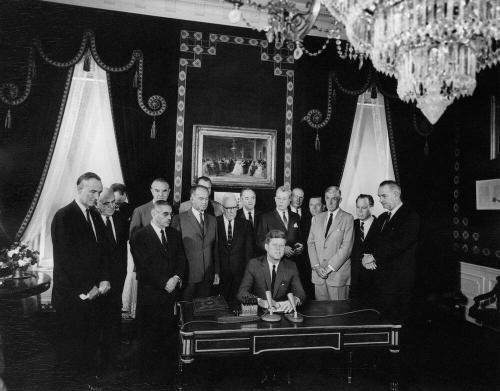Introduction:
In November 2009, Germany celebrated the 20th anniversary of the fall of the Berlin Wall. Germany’s reunification and the collapse of the Soviet Union ended the Cold War. And yet two major pieces of unfinished cold war business remain, two decades after the fall of communism: Fitting Russia into a pan-European security framework and finding a place for the other post-Soviet states.
These tasks have turned out to be much more difficult than expected. The assumption that a democratizing Russia would quickly integrate into Western structures has proven wrong. And the post-Soviet space has evolved into a space of geopolitical rivalry between the West and Russia. While reasserting itself as a great power, an ever more authoritarian Russia has made it clear that it is not willing to join the West unless “it is given something like co-chairmanship of the Western club.” Indeed, Russian Foreign Minister Lavrov once remarked that cooperation on an equal footing between Russia, the European Union (EU) and the United States was only feasible within “a system of collective security in which national strategic concepts are denationalized.” As neither an expanding NATO nor an expanding European Union has been willing to grant Russia membership or the role of a co-decision maker in matters of European security, Russia has remained outside the club.
The difficulty of anchoring Russia into Euroatlantic structures has been affected by the fact that Russia has proved to be one of the most divisive issues within the EU 27. Until the beginning of 2009 the lack of a coherent EU policy towards Russia was fuelled by a lack of coordination and growing disagreements on Russia or Russian related issues (e.g. about the pace of NATO enlargement and missile defense) between the U.S. administration of George W. Bush and big EU member states such as Germany, France and Italy.
